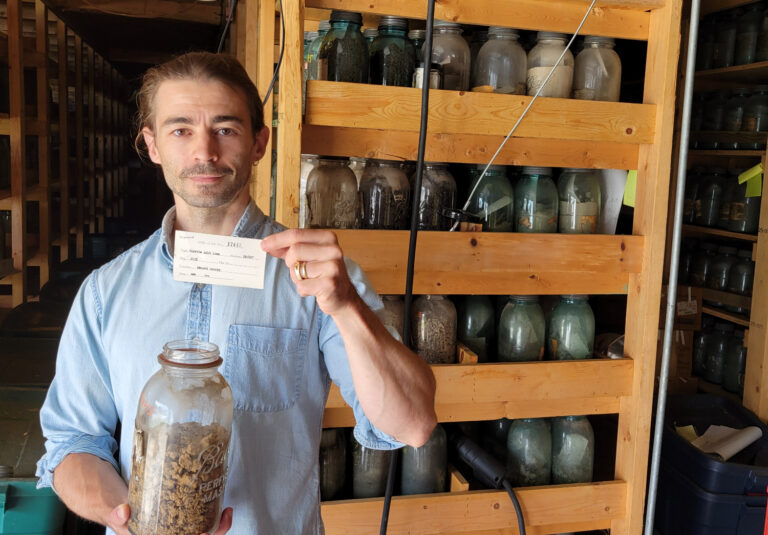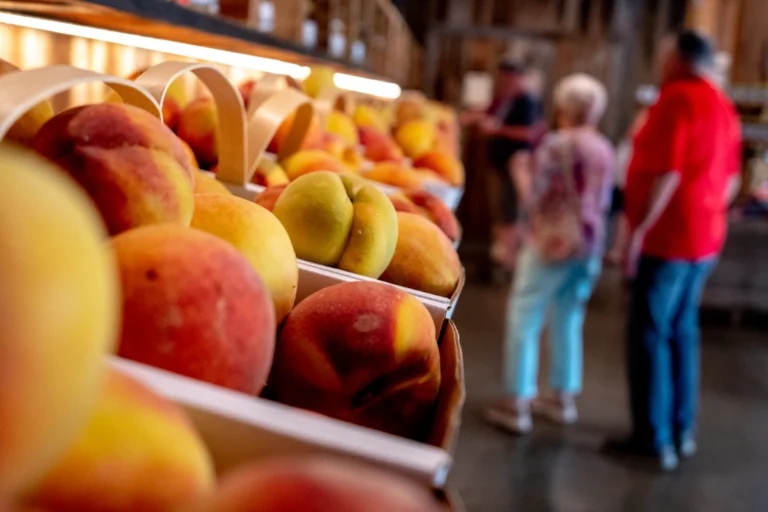
$51 million awarded to Champaign-Piatt-Macon biomanufacturing tech hub project
A year-long campaign to promote biomanufacturing in central Illinois has paid off for the University of Illinois and its partners. The U-S Commerce Department’s Economic Development Administration has awarded an approximately $51 million grant to a consortium led by the University of Illinois, to establish the Illinois Fermentation and Agriculture Biomanufacturing (or iFAB) tech hub in Champaign, Piatt and Macon Counties.
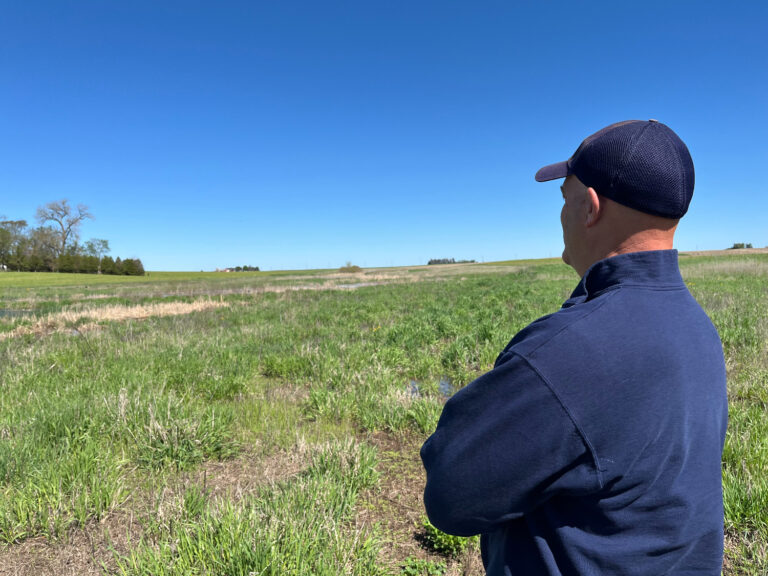
Drought lingers in parts of the Midwest and Great Plains. ‘You have to have some hope’
Planting is well underway across the Midwest, but farmers are still grappling with dry conditions that led to lower than normal corn yields last fall. It’s the third year of a near historic drought for parts of the Corn Belt.

NASA is helping farmers — how researchers are using satellite images to address big ag issues
It’s been a year since NASA kicked off an effort to provide farmers with useful information garnered from satellite images of Earth. The program includes
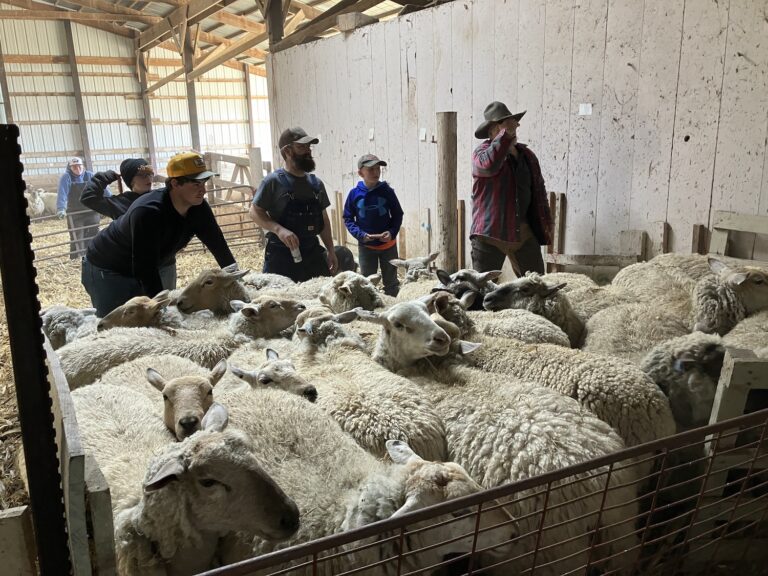
Wool prices are so low, Midwest sheep producers have to find new uses — or raise sheep without it
A strong spring wind rattles the metal, corrugated barn on the Cory Family Farm where inside, a few dozen sheep cluster next to a wall.

Cutting SNAP benefits is ‘not the right policy’ for farm bill, Agriculture Secretary Vilsack says
The Supplemental Nutrition Assistance Program — the food program for low-income individuals — has become one of the hottest topics in farm bill negotiations, as
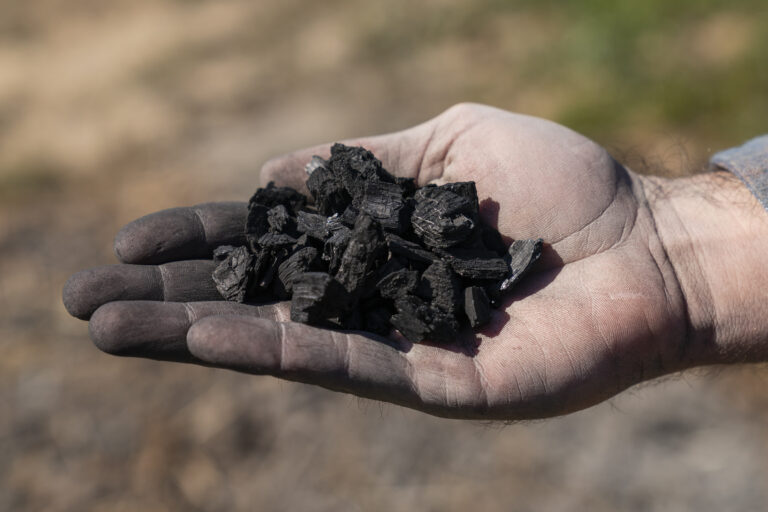
Biochar — an ancient farming method — is finding new life improving soil and burying carbon
Nick Cuchetti is mixing up something special in a bucket on his family farm in Luebbering, Missouri. The dusty substance looks a lot like charcoal,
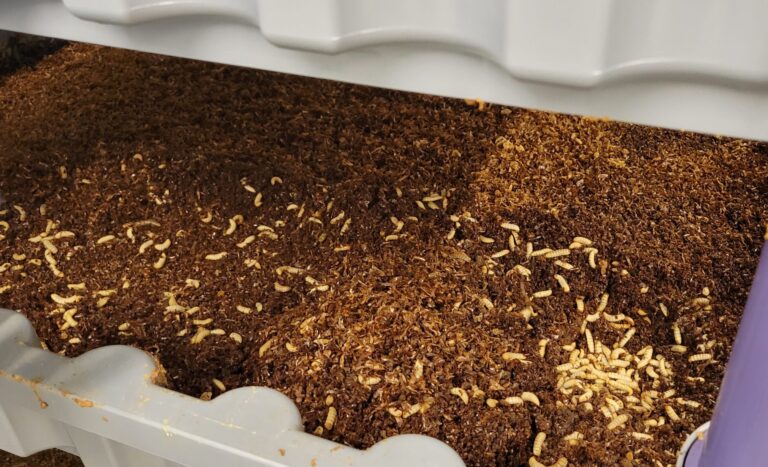
New facility in Decatur makes animal feed ingredients from insects
A new facility that raises fly larvae for animal feed has opened in Decatur.
Governor J-B Pritzker helped cut the ribbon Thursday for the North American Insect Innovation Center, built by the French biotech company Innovafeed SAS.
The 10,000 square foot facility, with a staff of ten, is the company’s first facility in the Americas. And it is a precursor to a much larger growing and manufacturing plant, with 100 to 300 employees, that Innovafeed plans to build adjacent to the current facility over the next two years.
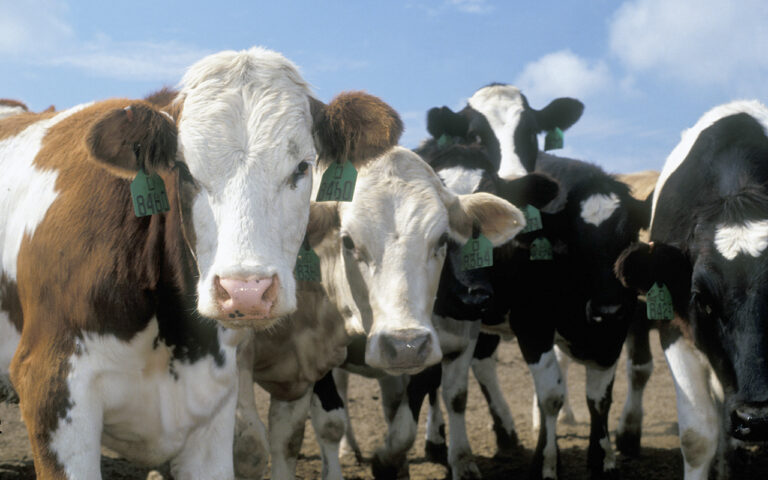
Bird flu is spreading in dairy herds. Midwest farmers say they’re vigilant but not alarmed
The flu has been found in cows for the first time, but most cattle seem to be showing only mild symptoms and recovering from the
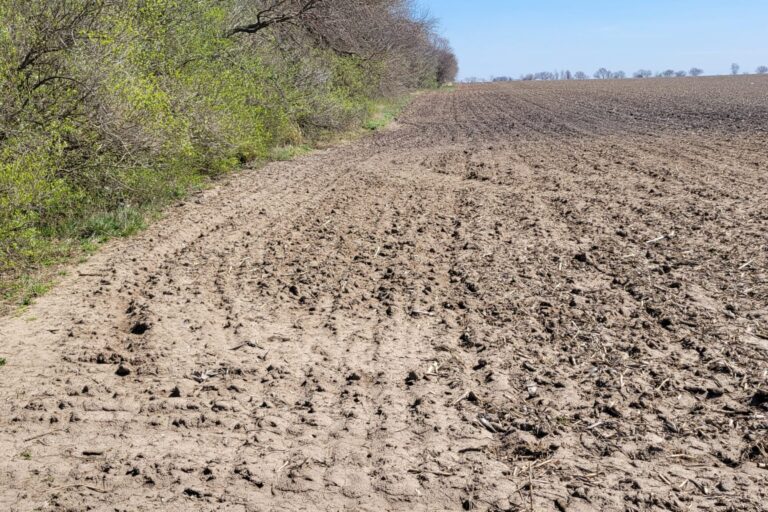
A UIUC researcher wants to compare new farmland soil samples to old ones. Objective: learn how farming affects soil over time.
A soil scientist at the University of Illinois Urbana campus is reaching out to landowners and farmers, as he prepares to take soil samples at locations where samples were taken years ago across the state.
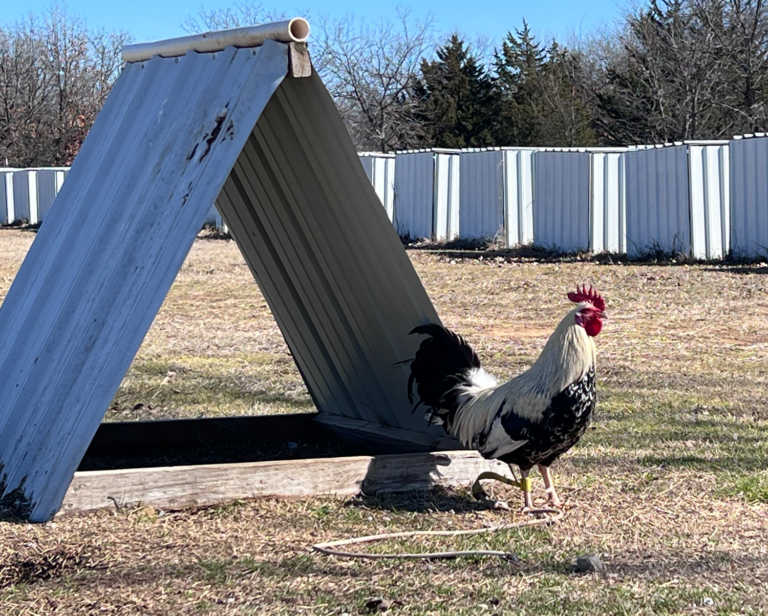
Raising roosters is big business. Now a push to ease penalties for cockfighting is ruffling feathers
There are rows and rows of small white structures housing individual roosters on Troy Thompson’s farm in southern Oklahoma. “You know, some people like pigs,
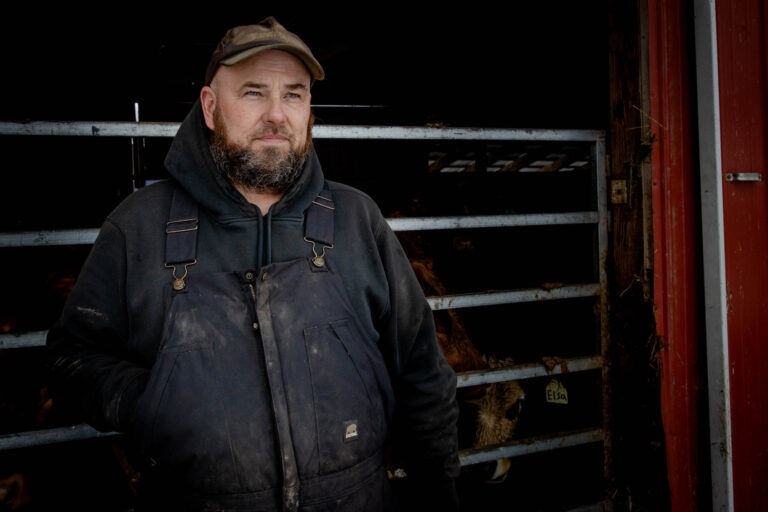
This farmer’s livelihood was ruined by PFAS-contaminated fertilizer that few Midwest states test for
Biosolids — a type of treated sewage byproduct from wastewater treatment plants — are used as a nutrient-rich fertilizer on farms across the Midwest. But
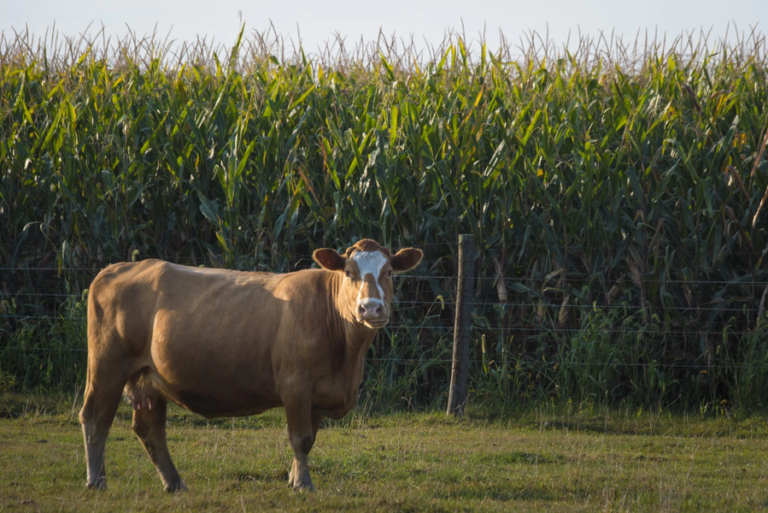
New USDA ‘climate-friendly’ farming and ranching practices have yet to be proven, report says
An environmental activist group charges that many “climate smart” farming practices recently added to a list for U.S. Department of Agriculture funding are not yet proven. The Environmental Working Group says funding from the Inflation Reduction Act should not be used to pay farmers for using the practices, until there is more evidence that they work.

